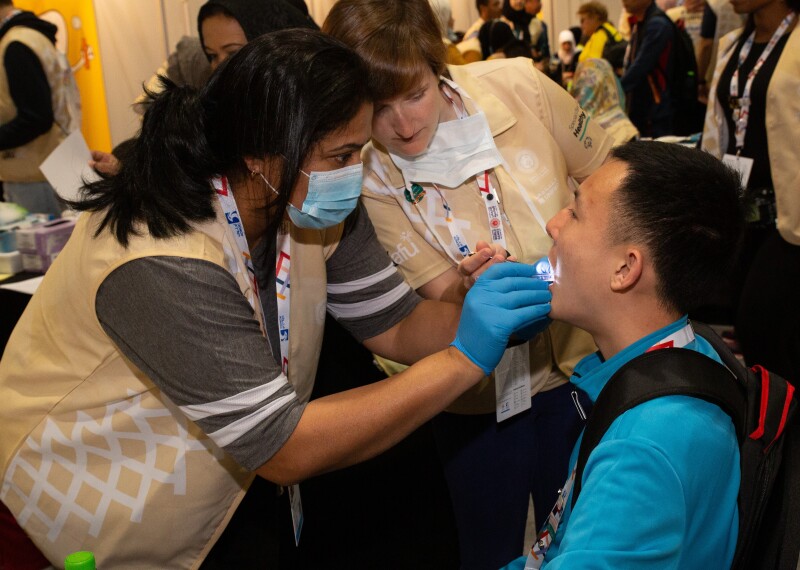
The American Academy of Developmental Medicine & Dentistry (AADMD) recently invited Dr. Alicia Bazzano, Special Olympics Chief Health Officer, to keynote a webinar titled COVID-19 and People with ID: Special Olympics Responds.
Dr. Bazzano was introduced by Dustin Plunkett, an athlete leader who was referred at a Special Olympics Healthy Athletes screening to a local dentist and diagnosed with treatable gum cancer.”
Dr. Bazzano went on to discuss the health disparities that are hitting people with intellectual disabilities particularly hard during the COVID-19 global outbreak. She outlined ways in which Special Olympics is filling those gaps and shared steps that health professionals can take right away to help deliver inclusive health services.
About Inclusive Health
Inclusive health means people with intellectual disabilities (ID) are able to take full advantage of the same health programs and services available to people who do not have ID. Currently, people with ID face significant challenges in accessing quality health care and obtaining opportunities that promote fitness and wellness, resulting in pronounced health disparities and reduced life expectancy. Special Olympics’ health programming focuses on improving the physical and social-emotional well-being of people with ID by increasing inclusion in health care, wellness and health systems for Special Olympics athletes and others with ID. Learn how we are making a difference.









